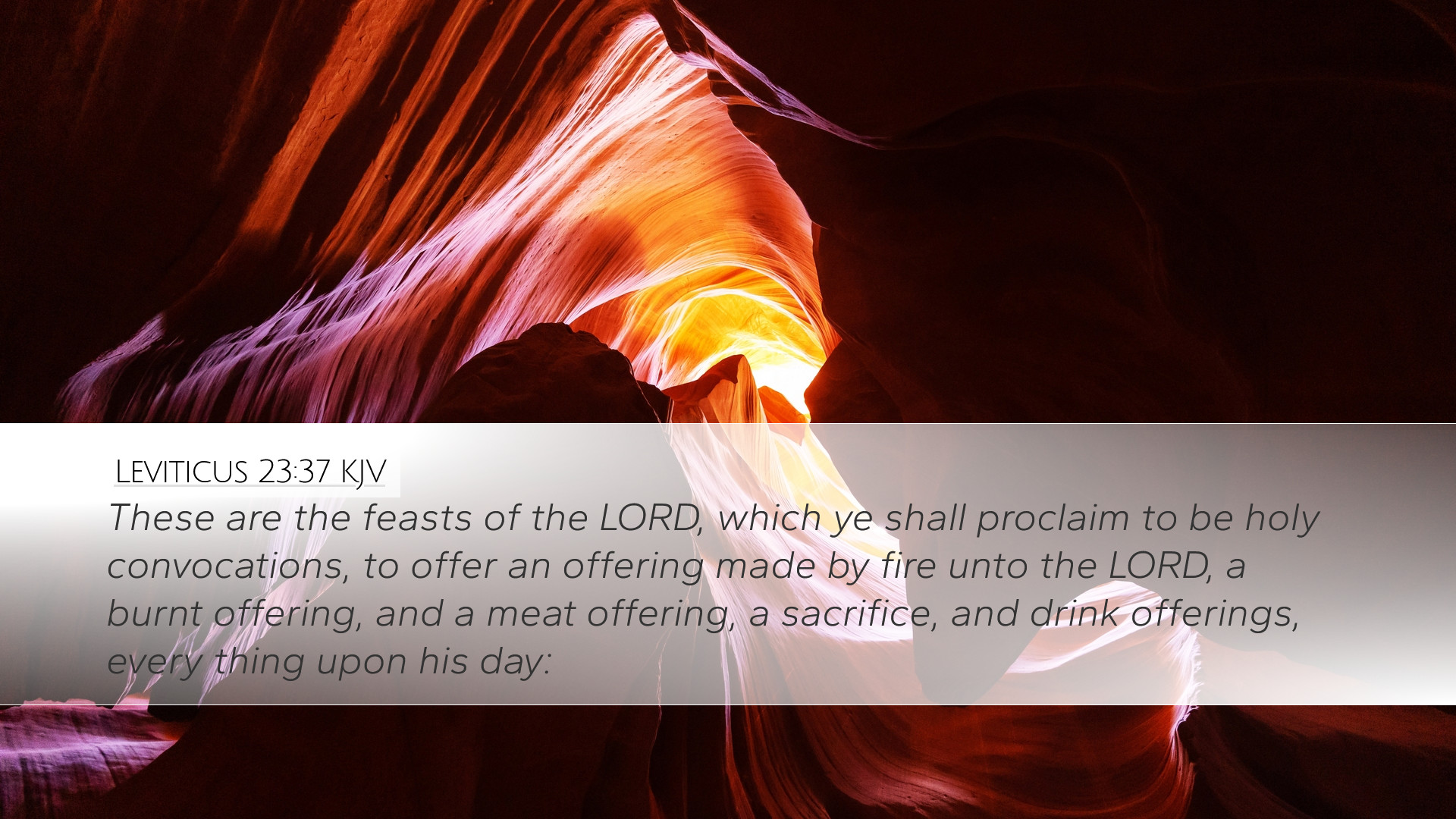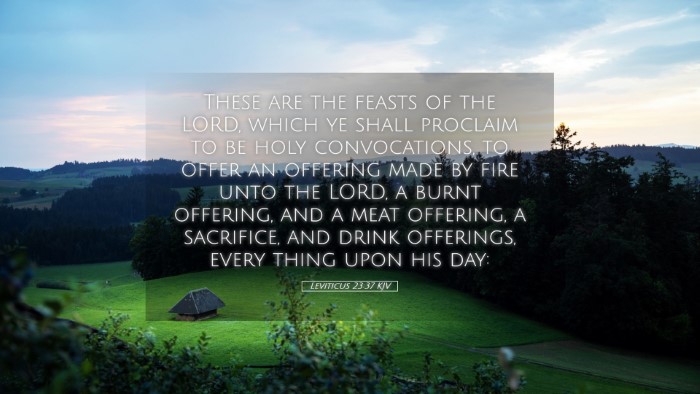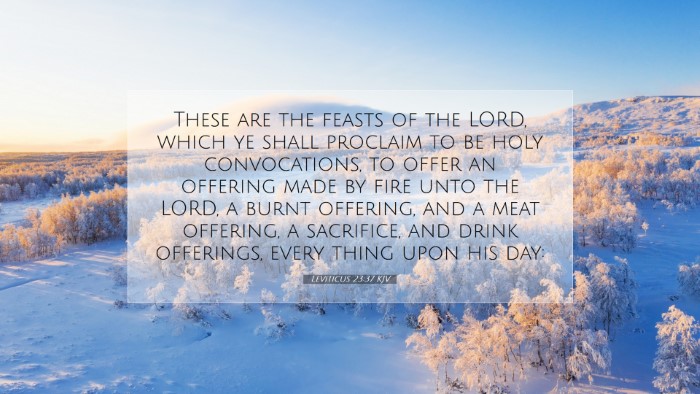Commentary on Leviticus 23:37
Verse Text: "These are the feasts of the LORD, which ye shall proclaim to be holy convocations, to offer an offering made by fire unto the LORD, a burnt offering, and a meat offering, a sacrifice, and drink offerings, everything upon his day."
Introduction
The book of Leviticus serves as a guide for the Israelites as they navigate their covenant relationship with God. Within this context, Leviticus 23 provides a comprehensive overview of the various feasts and festivals that were to be celebrated by the nation of Israel. Verse 37 closes a significant segment by reiterating the importance of these sacred occasions.
Overview of Public Domain Commentaries
Esteemed commentators such as Matthew Henry, Albert Barnes, and Adam Clarke offer valuable insights into this verse, illuminating its theological and practical implications.
Exegesis
Matthew Henry's Perspective: Matthew Henry emphasizes that the feasts were divinely ordained occasions for worship and community gathering. He notes that these feasts were not mere traditions but were intended to foster a sense of holy reverence and communal joy among the Israelites. He encourages the faithful to view these feasts as opportunities for deeper reflection on God’s providence and grace.
Albert Barnes' Commentary: Barnes elaborates on the specific offerings mentioned in the verse, discussing their significance as acts of worship. He points out that the offerings made by fire symbolize the purity and sanctity required in approaching God. The mention of burnt offerings, meat offerings, and drink offerings signify the comprehensive nature of worship, encompassing both physical and spiritual dimensions. He insists that the Israelites were called to present these offerings in a spirit of gratitude and acknowledgment of God’s sovereignty.
Adam Clarke's Analysis: Clarke provides a detailed examination of each type of offering. He explains that the burnt offering represents total surrender to God, while the meat offering (or grain offering) symbolizes devotion and gratitude. The drink offering serves as a complement, enhancing the act of sacrifice. Clarke also highlights that the phrase "upon his day" reinforces the notion that each feast has a specific time designated by God, thereby underscoring the importance of obedience to divine timings in worship.
Theological Implications
- Covenantal Relationship: The feasts encapsulate Israel's covenantal relationship with God, reminding them of His faithfulness.
- Holiness and Obedience: The call to proclaim these feasts underscores the importance of holiness in one's approach to God.
- Collective Worship: These celebrations foster a sense of community and collective worship, central to Israel’s identity as the chosen people.
- Symbolism of Offerings: Each type of offering conveys deeper truths about surrender, gratitude, and God’s provision.
Pastoral Applications
For pastors and leaders, this verse offers profound insights into structuring worship. Firstly, it emphasizes the need for intentionality in planning worship services around themes that reflect God’s character and His acts. Secondly, it serves as a reminder to encourage congregants to engage in acts of worship that symbolize their own surrender and gratitude before God. Finally, the communal aspect of these feasts can inspire churches to facilitate events that foster unity and corporate worship.
For Students and Scholars
This verse invites students of the Scripture to delve deeper into the cultural and historical contexts of ancient Israel's worship practices. Scholars may explore how these instructions provided in Leviticus inform our understanding of worship in both the Old and New Testaments. The contrast between Old Covenant feasts and New Covenant practices presents fertile ground for theological discussions about continuity and discontinuity in worship.
Conclusion
In summary, Leviticus 23:37 encapsulates essential aspects of the feasts that defined Israel's worship. The insights from Matthew Henry, Albert Barnes, and Adam Clarke collectively illuminate the significance of these divinely instituted celebrations, prompting both personal reflection and communal gatherings focused on honoring God. These feasts not only served as cultural markers but also as pivotal moments for the people of Israel to renew their covenant with the Lord.


